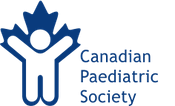Infant discharge home should be flexible and reversible
OTTAWA –. Women who give birth to late preterm babies shouldn’t have to leave without their newborns when they go home from the hospital. Prolonged hospital stay is not always required for babies born between 34 and 36 weeks’ gestation. Timely discharge should be encouraged as it has benefits for both mothers and newborns, according to the Canadian Paediatric Society.
In a new statement, published today in Paediatrics & Child Health, the CPS outlines recommendations for the safe discharge of late preterm infants and calls for fewer formal administration procedures if babies have to be readmitted.
“Early safe discharge is possible and a desirable goal,” says Dr. Robin Whyte, principal author of the statement and member of the CPS Fetus and Newborn Committee. “We’ve got to take a certain number of precautions to make sure that the transition of these babies into the communities is done safely.”
Approximately six per cent of Canadian infants are considered “late preterm”. These babies are often perfectly healthy and able to go home after the same length of hospital stay as a baby born full term. Before discharge, 24 hours of successful feeding of late preterm infants must be established.
However, while safe early discharge is encouraged, it also means that the chance of readmittance increases.
“We’re better at bringing mother and baby together sooner thanks to technological advances in health care,” says Dr. Whyte. “However, at this age babies are still premature and might require a little bit of extra care.”
Late preterm infants are most often at risk for hospital readmission with such conditions as jaundice, apnea, respiratory problems and feeding problems. According to the statement, doctors should be aware of these risk factors while offering discharge options that are flexible and reversible. Parents should feel comfortable to take their baby home when ready knowing that they can return quickly if necessary.
“Though disappointing for families, readmittance is not necessarily a bad thing,” said Dr. Whyte. “It means that the baby has already been home with family, been loved and cared for.”
Parents should be alert for signs of jaundice, provide a safe sleeping environment for baby, seek breastfeeding support, and prevent infection by avoiding exposure to anyone with a viral infection. A follow-up appointment within 48 hours of discharge should be arranged with a community-based health care provider.
To access the full statement, visit: Safe discharge of the late preterm infant.
About the Canadian Paediatric Society
The Canadian Paediatric Society is a national advocacy association that promotes the health needs of children and youth. Founded in 1922, the CPS represents more than 3,300 paediatricians, paediatric subspecialists and other child health professionals across Canada.
Last updated: Nov 13, 2012
